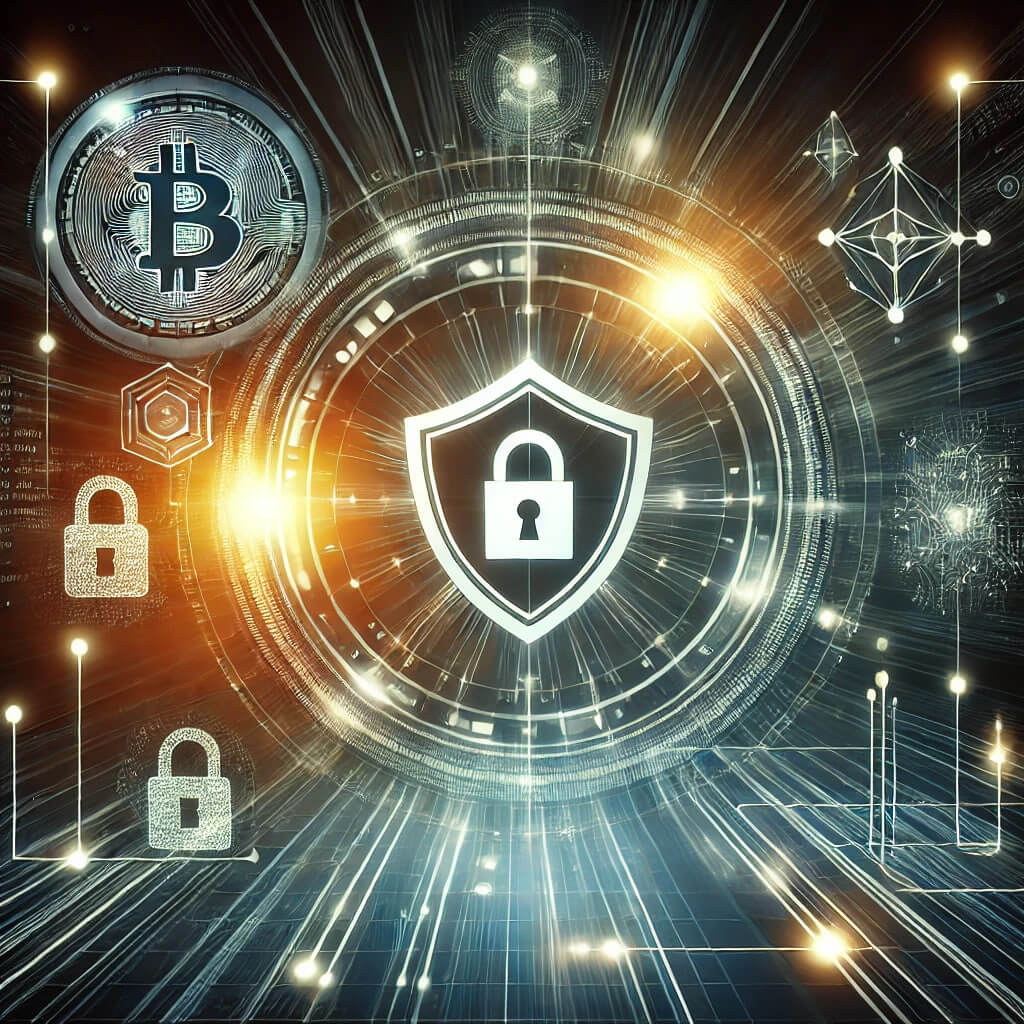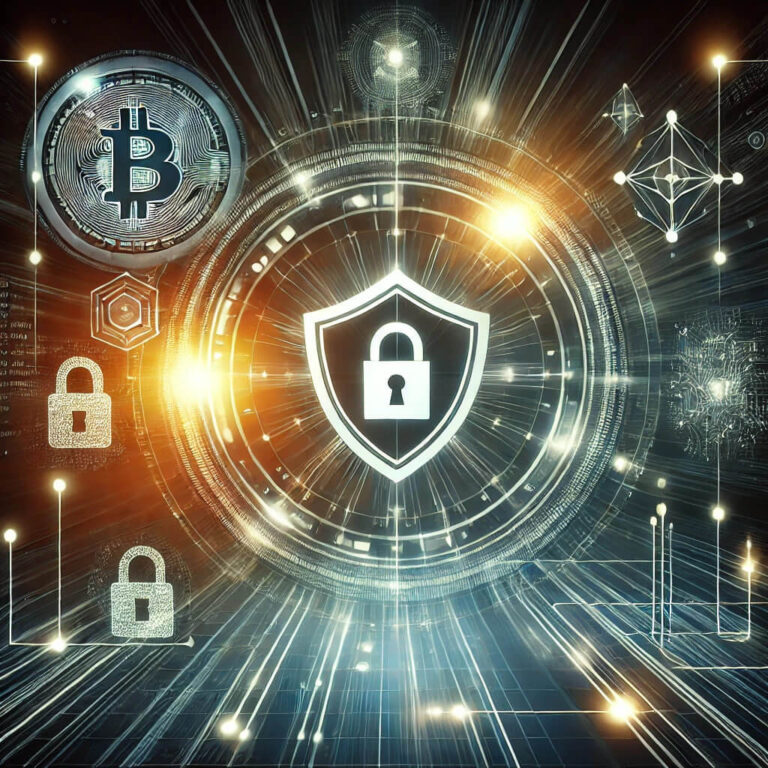
As cryptocurrencies enter mainstream recognition, the pioneers safeguarding investors from proliferating cyber threats earn distinction as blockchain’s quasi mythical guardians—the Vanguard Defense. This venerated security cohort combines white hat auditors and engineers upholding cryptographic foundations, investigative cyber sleuths outwitting scam artists, and shrewd analysts tracking codified regulatory tea leaves.
Together, these guardians sustain finance’s burgeoning decentralized future by buttressing ecosystem security infrastructure and Foster community vigilance against threats seeking inroads for disruption and larceny. We explore this avantgarde fellowship bolstering blockchain’s antifragility evolution.
The Vital Role of Crypto Guardians
The permissionless premises underpinning cryptocurrency and open blockchain architectures depend upon robust security foundations and sage user custodianship repelling exploitation efforts. However, immature markets often discount governance and self-regulatory leadership.
Into this void charge the multi-disciplinary crypto guardians wielding integrated protective skill sets spanning information security, fraud investigation, regulatory analysis and grassroots community education. By strengthening security protocols and boosting herd immunity through elevating collective vigilance, crypto guardians uphold antifragility attributes allowing decentralization experiments to thrive.
Threat Diversity Confronting Crypto Users
Myriad hazards menace cryptocurrencies from all vectors including:
Cyber Attacks Sophisticated hackers develop exploits targeting infrastructure and asset wallets including supply chain hardware compromises, DNS routing manipulation, DDoS floods, malware trojans and phishing.
Scams From false exchange fronts to fraudulent token schemes, cryptocrimes require constant vigilance and fraud investigation.
Poor Governance
Flawed administrative controls enable hot wallet crypto leakage, frozen fund suspensions and fractional reserve risks diminishing user trust.
Without responsive guardians addressing acute threats while strategizing long-view security frameworks, cryptocurrencies risk reputational damage eroding mainstream adoption prospects.
Combating Threat Actors and Scammers
Battle-tested guardians utilize integrated strategies against threat actors:
Proactive Security Audits Stress testing networks and smart contracts identifies vulnerabilities for patching while setting bounties incentivizing white hat hacking reveals overlooked risks.
Threat Intelligence Monitoring scraped forum chatter coupled with dark web surveillance detects emerging criminal schemes and infrastructure hacking plots often before launch allowing rapid countermeasures.
Community Fraud Awareness Public reporting channels alongside media coverage of prolific scammers enhances herd detection capabilities against even novel social engineering tactics while debunking false narratives
Transparent Incident Postmortems Blockchain’s permanent ledger enables fully disclosed forensic analyses after major breach events to educate users against repeat episodes through applied learning.
While perfect security remains impossible, responsibly disclosing residual risks and responses boosts community resiliency against follow-on occurrences.
Cutting Edge Tools Shielding Cryptocurrencies
Beyond social efforts lifting herd immunity, crypto guardians actively develop and integrate bleeding-edge technological protections spanning:
Biometric Security Multifactor crypto wallet access via facial recognition, fingerprints and retinal scans blocks spoofing risks.
Confidential Computing Isolates sensitive wallet signatures and keys within tamper-proof hardware enclaves fortified through dynamic runtime encryption.
White Hat Deception Tools
Sophisticated tools emulate genuine wallets, exchanges and tokens as honeypots attracting adversaries for surveillance and counterstrikes foiling automated attacks.
Quantum-Resistant Encryption Next-generation cryptography resistant to cracking from advancing quantum computers which threatens current standards at scale.
By blending sophisticated security suites with prudential governance policies and best practice evangelization, guardians propel blockchain ecosystems ever closer to antifragility escape velocity free from systemic fragilities plaguing traditional finance.
Instilling Best Security Practices Across Crypto Users
Beyond leading complex countermeasures, crypto guardians also educate community members on basic protective habits including:
- Establishing robust separate passwords per account
- Activating multi-factor authentication wherever offered
- Limiting account linkage across services
- scrutinizing transaction confirmations
- Avoiding public WIFI for admin activities
- Validating request authenticity before providing data
Daily habits compound over time establishing herd psychological resilience against broad social engineering efforts seeking access through manipulation rather than coding exploits.
Guardians in Action: Case Studies of Effective Defense
While much frontline cryptographic defense unfolds silently, occasional public battles illustrate guardian effectiveness:
Poly Network Hack and Revival A high-risk lending startup lost $600 million to hackers in 2021 before white hat defenders traced laundering attempts and negotiated return of nearly all funds minimizing long-term damages.
Bitfinex Data Leak Controversy After 2015 exchange breaches leaked user data, fraud investigators provided guidance assisting affected customers while Bitfinex controversially avoided accepting full responsibility drawing industry criticism.
Mt Gox Collapse Postmortem
Years after unreconciled losses from 2014’s largest crypto hack, blockchain analysts completed forensic reconstruction of theft mechanics enabling partial victim restitutions demonstrating applied learning.
Through sustained instance response and applied case learning, seasoned guardians steadily enhance institutional knowledge for trained successors continuing the watch.
The Regulatory Landscape for Crypto Security
As cryptocurrencies centralize within mainstream finance, maturing regulations bring compliance challenges and opportunities for crypto security practitioners including:
Mandated Reporting
Stringent disclosure requirements around security breaches and fraud events pressure exchanges while informing users.
Standardized Controls & Auditing Common certification frameworks like ISO 27001 shaping institutional policies and audit priorities around risk and resilience.
Licensing Requirements Emerging jurisdictional guardrails mandate minimum liquidity reserves, bonding policies and security layers as prerequisite for operating.
In addition to hardening industry defenses, thoughtful regulation also supports guardians through validating best practices while encouraging professional development.
Accrediting the Next Generation Guardians
In a knowledge-driven field with few institutional curriculums tailored to unique blockchain threats, many guardians gain exposure through hands-on cryptocurrency participation before seeking accredited specialization:
- CISSP / CISA / OSCP: Foundational infrastructure and cryptography certifications
- CFCS / CAMS: Compliance acumen around fraud and financial crimes
- C|EH: Applied penetration testing marital arts
- Bitcoin Core: Protocol-level competency mastery
- DeSci: Decentralized finance and dApp programming
Whether self-taught or UC Berkeley bootcamp polished, passion for advancing blockchain security and protecting communities underpins the most impactful guardians on the frontier.
TheFuture of Cryptographic Security & Threat Modeling
As cryptocurrencies swell into trillion-dollar capitalizations, the benign frontier era concludes ushering rising threats commensurate with deepening rewards. Guardians stand poised to defend mounting bastions through:
AI-Powered Cyber Threat Modeling Machine learning simulations reveal uncommon breach vectors across expanding attack surfaces inside hyperconnected smart contract ecosystems
Proactive Infrastructure Cyber Maneuvers Controlled penetration attempts against live environments enable supervised vulnerability discovery to harden networks before malicious actors unleash the same vectors.
Predictive Regulatory Forecasting Game theory scenarios anticipate legislative risk outcomes for security and compliance leaders to adjust controls and advisories preemptively.
Through such cryptographic innovations, the vanguard security coalition leads blockchain’s continual self-improvement movement toward possessing robust institutional confidence and mainstream viability.
Join the Watch The call echoes across blockchain realms to technically proficient and security-minded allies – join the watch standing sentry against gathering threats laying siege to utopian dreams built on cryptography and decentralization. For guardians uphold central pillars fortifying cryptocurrency’s towering potential as the financial world’s next evolutionary stage!
FAQs
- What are the main security threats confronting cryptocurrencies? Key hazards include cyber theft through hacking vulnerable code and infrastructure, scamming users through fraud tactics and misappropriating funds through hot wallet mismanagement or insider administrative abuse.
- What protective measures do crypto security guardians provide? Guardians conduct security audits pen-testing software, monitor online communities identifying emerging threat tactics, investigate reported fraudulent schemes and provide public education on best security habits complementing technological measures.
- What are examples of reputable hardware cryptocurrency wallets? Top hardware wallets like Trezor and Ledger utilize encrypted offline asset storage and code attestation during transactions for maximum security against digital theft vectors. These devices excel for large crypto holdings.
- How does accreditation benefit cryptocurrency security professionals? Relevant accreditations like CISA and CFCS validate specialized expertise in blockchain cryptography, threat intelligence, incident response methodologies and compliance – all tailorable to addressing unique cryptocurrency security challenges.
- How can regulations aimed at cryptocurrencies improve security? Prudent regulations often mandate periodic audits applying institutional quality standards, minimum technological controls and liquidity reserves while licensing consolidates fragmentation allowing dedicated cybersecurity investment.



